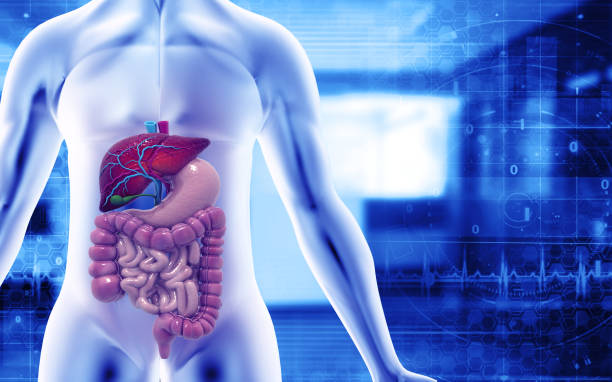Digestion is one of the most vital processes in the human body yet it’s often misunderstood. Many people wonder: How long does it take to digest food The truth is, digestion time can range anywhere from 30 minutes to 48 hours depending on what you eat, how much you eat and your personal health
In this in-depth guide we’ll break down
- How the digestive process works from start to finish
- Which foods digest faster and which take longer
- Factors that affect digestion speed
- How to improve digestion naturally
- Fun and surprising digestion facts
By the end, you’ll know exactly how to plan your meals for better energy, weight control, and overall health
Understanding the Digestion Process (H2)
Digestion is the biological process that breaks down food into smaller, absorbable nutrients your body can use for energy, growth, and repair. It starts in your mouth and ends in your large intestine, with several organs working together:
- Mouth – Chewing and mixing with saliva (which contains enzymes) begin breaking down food.
- Esophagus – Food moves to the stomach via muscular contractions called peristalsis.
- Stomach – Stomach acid and digestive enzymes break proteins into smaller chains.
- Small Intestine – Most nutrient absorption happens here, aided by bile from the liver and enzymes from the pancreas.
- Large Intestine – Water and minerals are absorbed; the rest is turned into waste.
Average Total Digestion Time: 6–8 hours for food to pass through the stomach and small intestine, plus 12–48 hours in the large intestine.

How Long Different Foods Take to Digest (H2)
Not all foods digest at the same speed. Some, like watermelon, pass through your system in under an hour, while fatty meats may take most of a day.
| Food Type | Examples | Average Digestion Time |
|---|---|---|
| Fast-Digesting (30 min – 2 hrs) | Watermelon, apples, bananas, cooked vegetables, lentils, yogurt | 30 min – 2 hrs |
| Moderate (2 – 4 hrs) | Rice, bread, potatoes, beans, eggs | 2 – 4 hrs |
| Slow (4 – 8+ hrs) | Chicken, mutton, fried foods, rich desserts | 4 – 10 hrs |
Quick Tip: Eating lighter, high-fiber foods earlier in the day can keep your energy stable and prevent sluggishness.
Factors That Affect Digestion Speed (H2)
Your digestion time depends on more than just what’s on your plate. Key factors include:
- Food Type – Fresh, high-water foods like fruits and salads digest faster.
- Meal Size – Larger portions take longer.
- Age – Digestion slows with age due to reduced stomach acid.
- Activity Level – Active people digest faster.
- Stress & Sleep – High stress and poor sleep slow digestion.
Pro Tip: To speed up digestion, eat smaller meals, chew thoroughly, and manage stress with light exercise or deep breathing.
Empty Stomach vs. Full Stomach Digestion (H2)
- Empty Stomach: Fruits and raw vegetables digest much faster when eaten alone.
- Full Stomach: Eating on top of a previous meal slows digestion, increases bloating, and can lead to discomfort.
Best Practice: Wait 3–4 hours between meals to allow proper digestion

Common Digestion Problems & Their Causes (H2)
| Problem | Possible Cause |
|---|---|
| Gas/Bloating | Too much oil/spices, eating too fast |
| Indigestion | Overeating or eating too often |
| Acid Reflux | Coffee/tea on empty stomach |
| Constipation | Low fiber, dehydration, inactivity |
Natural Ways to Improve Digestion (H2)
- Chew food slowly and thoroughly
- Take a short walk after eating
- Drink adequate water (but avoid chugging immediately after meals)
- Include digestion-friendly foods like fennel seeds ginger buttermilk, mint, and ajwain
- Maintain regular meal times
Fun Facts About Digestion (H2)
- Watermelon is one of the fastest-digesting foods — just 20–30 minutes!
- Cheese and red meat are among the slowest to digest.
- After 8 p.m., digestion naturally slows, which is why late-night heavy meals cause discomfort.
Conclusion (H2)
Understanding digestion time helps you make smarter meal choices for better energy weight control and gut health. Eat a balanced diet, space out meals, and include fiber-rich foods for a happier, healthier digestive system.
Disclaimer
The tips and suggestions mentioned in this article are intended for general informational purposes only Before starting any fitness program, making changes to your diet, or trying any remedies related to health conditions, please consult your doctor or a qualified healthcare professional. Dr. You does not verify or endorse the authenticity of any such claims made herein

